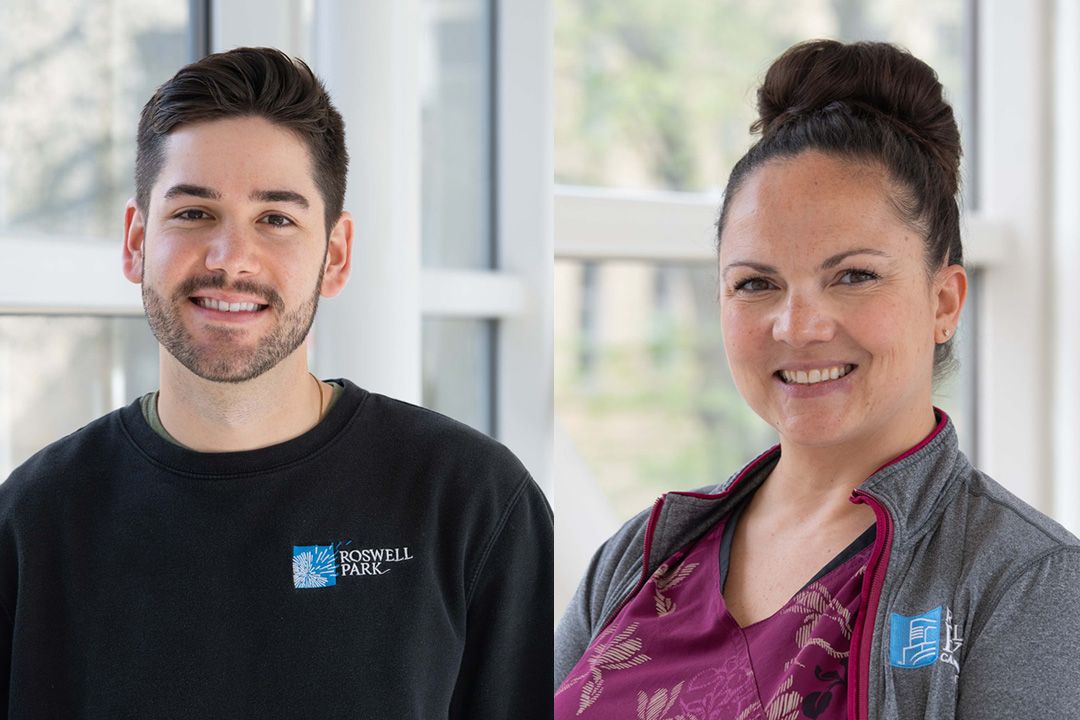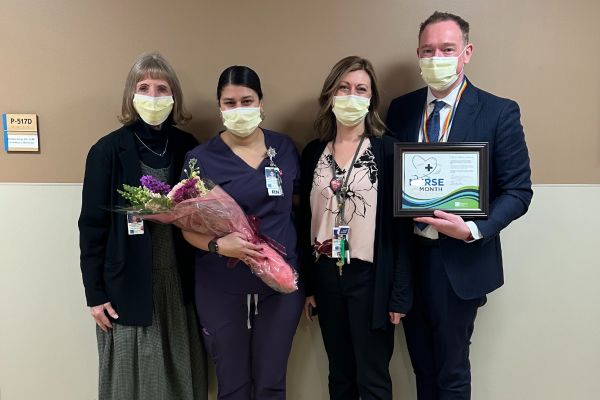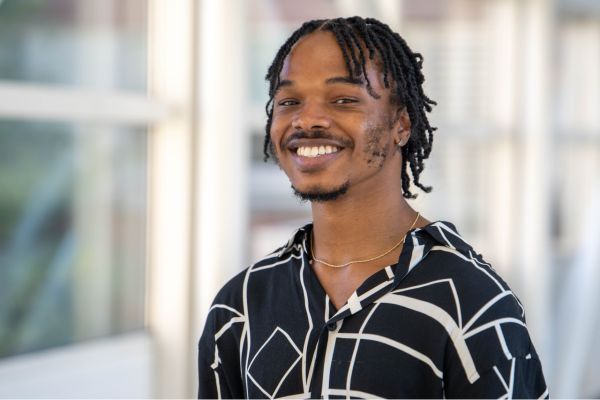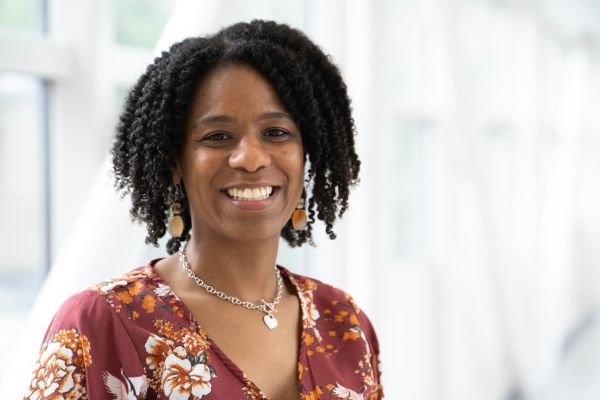Nurses are critically important to all patients, at every kind of healthcare facility. But at Roswell Park Comprehensive Cancer Center, our patients are only treated by oncology nurses.
All nurses at Roswell Park are oncology nurses, meaning they are differentiated from nurses that might work in an emergency room, more generalized hospital environment or in a community doctor’s office. When a nurse is hired at Roswell Park, part of their orientation and initial training involves learning about chemotherapy and how to administer it.
“Chemotherapy is such a big portion of our training. We also learn about different specialties and different medications and ways to care for patients with cancer. It’s different from the training I’ve had at any other hospital,” says Nicholas Couch, BSN, RN, CMSRN, a nurse on 7 East.
Early training also includes how and when to administer chemotherapy and medications needed before transfusion.
“Oncology nursing is more specialized to the patients than general medical-surgical training. You’re more focused on building relationships with the patients,” Couch says. “Some are younger, some are older, and they’re often just finding out about their diagnosis. It’s so life-changing and difficult for the patients and their family, so I feel like being an oncology nurse, training for that and knowing how to deal with new diagnoses and how hard this is for all of them, we focus a lot on bedside nursing for them.”
Understanding a patient’s medication, their treatment schedule and what it will entail, means Roswell Park nurses also can explain what to expect and offer compassion and empathy to the patient and their loved ones, Couch says.
Learning more about patients and their treatment
Some Roswell Park nurses take additional training to become oncology certified nurses, with the credentials OCN appearing on their badge. Amanda Cruz, BSN, RN, OCN, CMSRN, is among them and says she wanted to add to her education to further help patients.
She started her time at Roswell Park working for six years as a secretary in the neuro-oncology department, and it was through working with the team and patients there that she decided to become a nurse and take the OCN training later.
“You have to have at least two years of oncology nursing experience to be able to take the test. As soon as I was eligible, I wanted to take it,” Cruz says. “I just wanted to have it. I think it’s important and it makes me be the best oncology nurse I can be. Not only that, but I learned a lot by getting prepared for that test. I had to study a lot for it.”
In addition to the orientation training nurses receive when they start at Roswell Park, OCN training went deeper into the specifics of oncology and various types of cancer she wouldn’t necessarily see in her daily work on 7 East. “I had to study a lot of things I wasn’t familiar with, especially with chemotherapy side effects and bone marrow transplants,” she says. "At least 50% of the test is oncology questions beyond something a chemo nurse would have to know about oncology and how it affects the body and patient, plus a lot of general cancer knowledge.”
She also learned about warning signs of an oncologic emergency, how to tell if a patient is having a bad or allergic reaction to their treatment, and types of treatment that might have outsized impacts on other parts of the body, including which chemotherapies might damage the patient’s kidneys, heart or other organs.
Become a Roswell Park nurse
Our nurses are exceptional. Whether you are just getting started on a nursing career or are looking to your next chapter, Roswell Park can help you achieve your personal and professional goals.
Focused on helping patients through a challenging time
Both Couch and Cruz say their training in oncology focused on helping their patients understand and cope with their diagnosis.
“In oncology, patient relationships are so important. We build such strong relationships with our patients and I think that’s a big portion of our job,” Couch says. “Being able to sit there with the patients and understand what the’yre going through can make a huge difference. I feel it gives them a lot of trust in you as a nurse.”
If it weren’t for the patients she met as a secretary, Cruz says she would not have considered making such a big career change: “This population here at Roswell Park is so special. They made me want to become a nurse. If there was another certification I could get right now I would, I want to be the best nurse I can possibly be for them. Roswell Park is the reason I became a nurse.”



